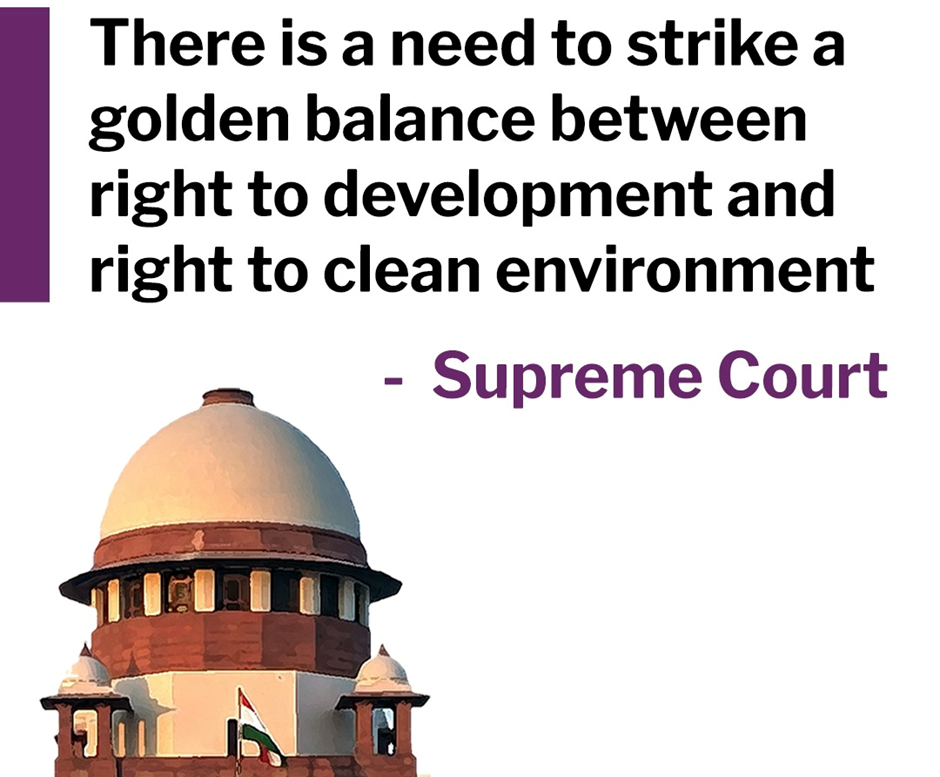Context:
In a landmark judgment, the Supreme Court of India has underscored the need for a balanced approach between the right to development through industrialization and the right to a clean environment. The court set aside two separate orders—one from the National Green Tribunal (NGT) and another from the Madras High Court—that had halted development activities at Auroville, a township project, due to the lack of environmental clearance.
Key Takeaways from the Judgment
1. Balancing Fundamental Rights
The Supreme Court affirmed that while the right to a clean environment is a fundamental right under Articles 14 and 21 of the Constitution, the right to development through industrialization also claims priority under the fundamental rights framework, especially under Articles 14, 19, and 21. This ruling highlights the importance of considering both development and environmental concerns as equally valid rights.
2. Sustainable Development
The court emphasized the need for sustainable development that strikes a "golden balance" between promoting industrialization and protecting the environment. The judgment recognizes that economic growth cannot come at the expense of environmental degradation, and the two should coexist harmoniously through careful planning and responsible development.
3. Judicial Review
The judgment also stressed the importance of judicial restraint, warning against judicial overreach. The court stated that the judiciary should not interfere with the implementation of approved development plans—such as the Master Plan for Auroville—unless there are extraordinary circumstances that justify such intervention. This reinforces the need for the judicial system to respect established plans and processes unless a clear legal issue is at stake.

Background of the Case
- The case centred around the development activities at Auroville, a township project in Tamil Nadu. In 2022, the NGT had directed the Auroville Foundation to halt construction activities due to the lack of environmental clearance. Similarly, the Madras High Court had annulled a notification issued by the Foundation regarding the reconstitution of the Auroville Town Development Council. These judicial actions led to appeals by the Auroville Foundation, resulting in the Supreme Court's intervention.
Implications of the Judgment
- The Supreme Court's ruling has far-reaching implications for the future of development and environmental protection in India.
- By reaffirming that both the right to development and the right to a clean environment are fundamental rights, the Court has set a clear precedent for striking a balance between economic progress and ecological sustainability.
- As India continues its pursuit of industrialization and economic growth, this decision serves as a crucial reminder that development must be pursued with care, responsibility, and a commitment to sustainability. It also reaffirms the country's constitutional commitment to both economic development and environmental protection, offering a model for future governance and judicial decision-making.
- This judgment offers a critical step towards achieving a harmonious balance between the two essential pillars of India’s growth—development and environment—under the larger framework of fundamental rights.






